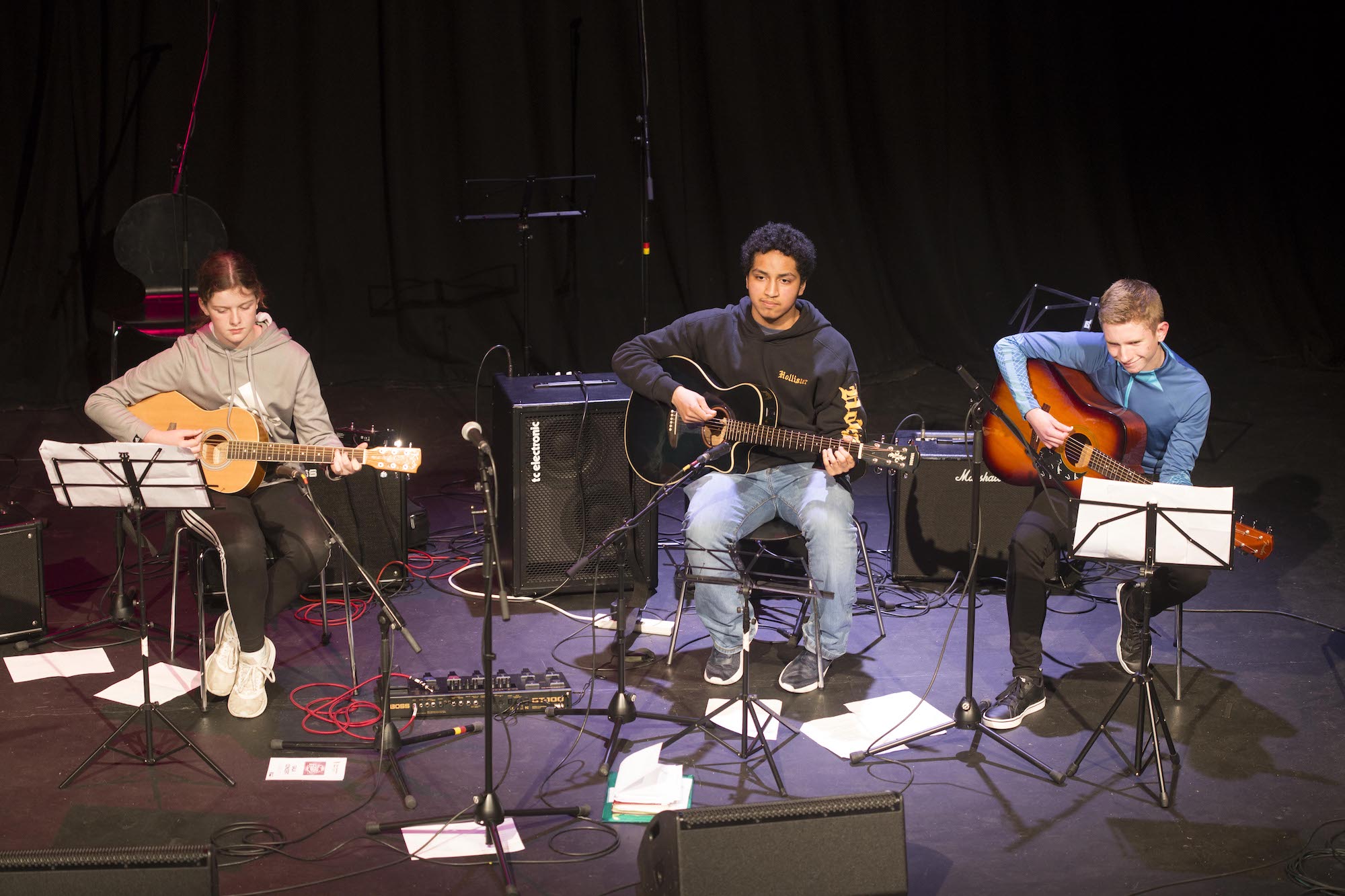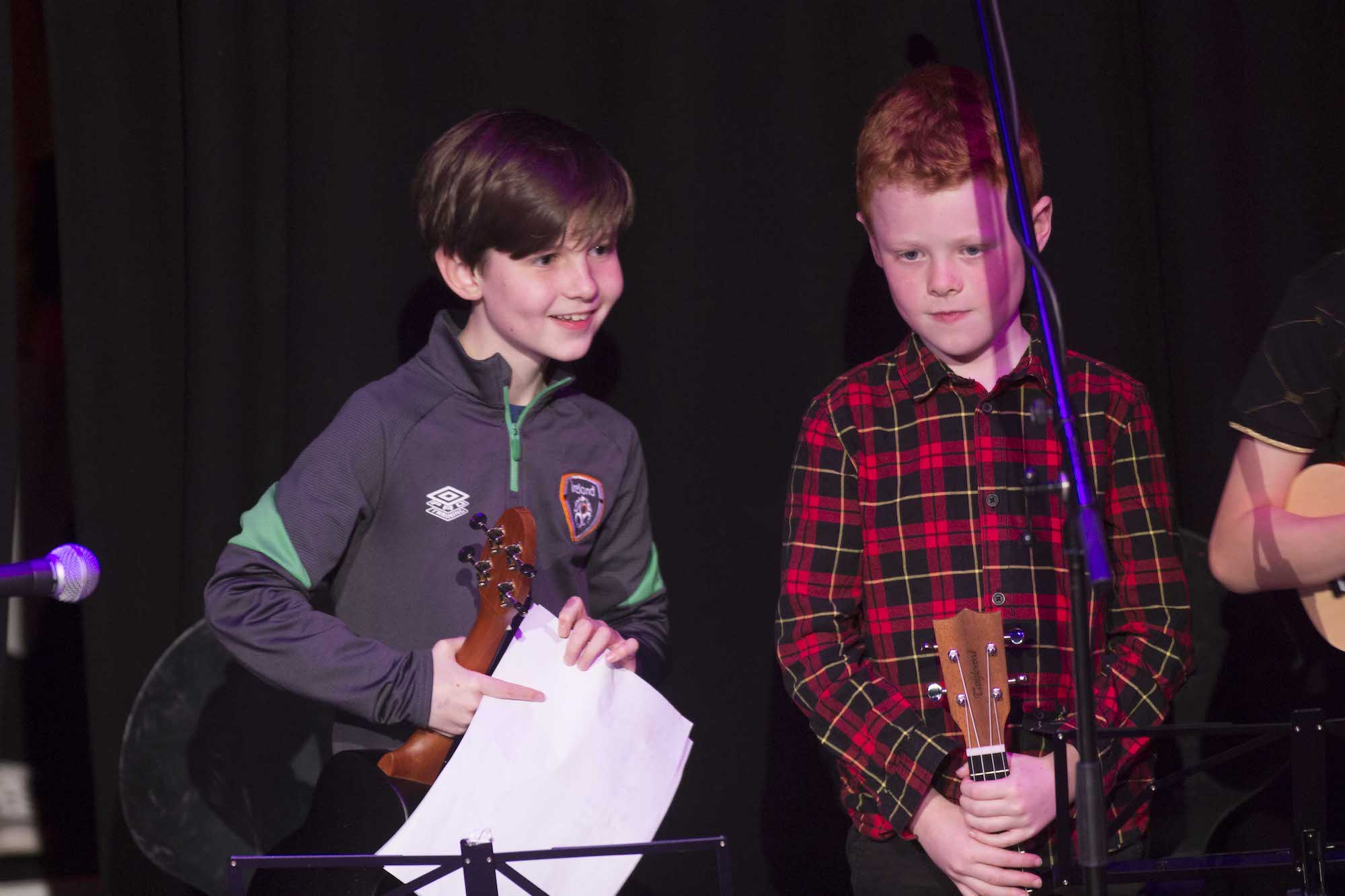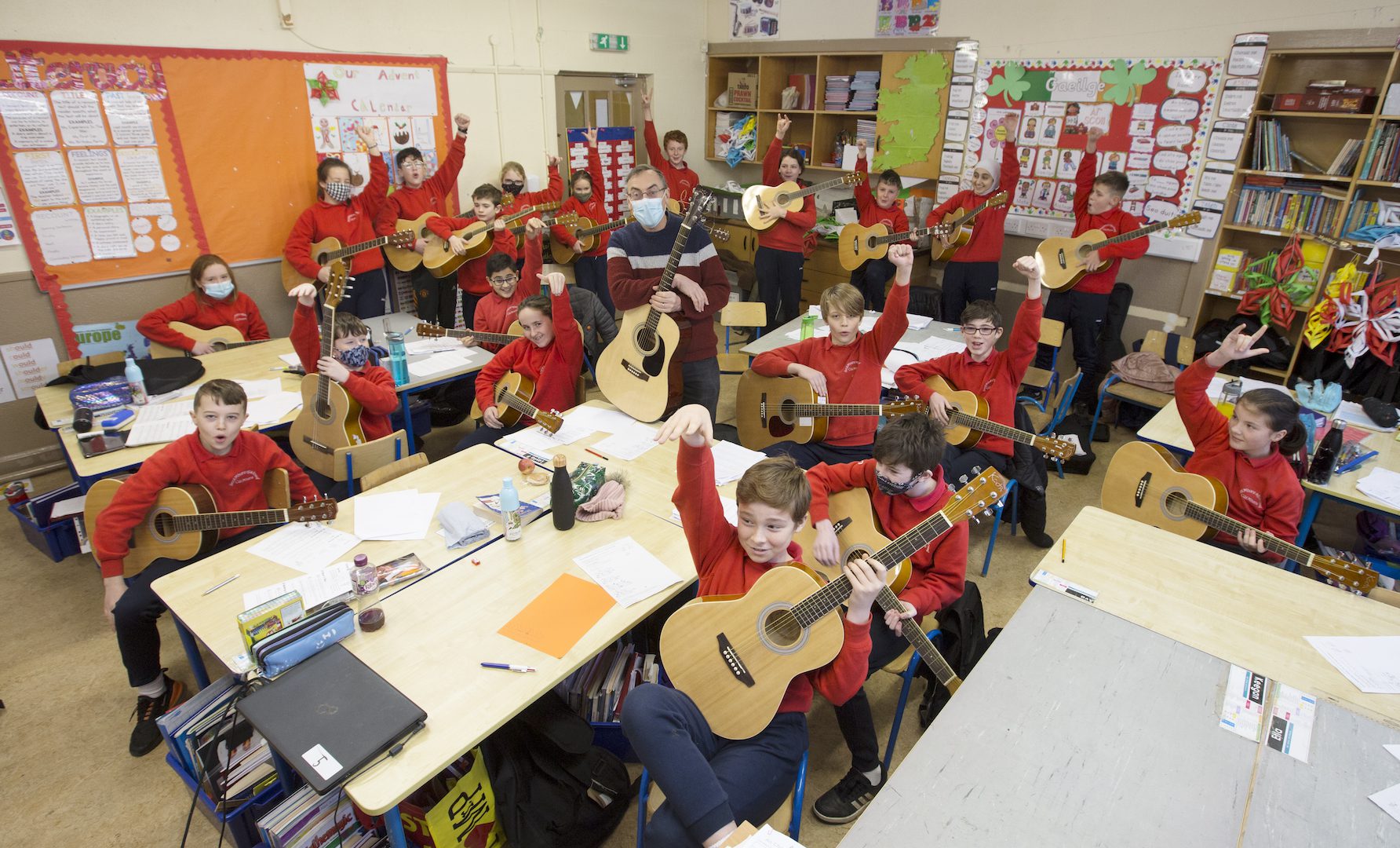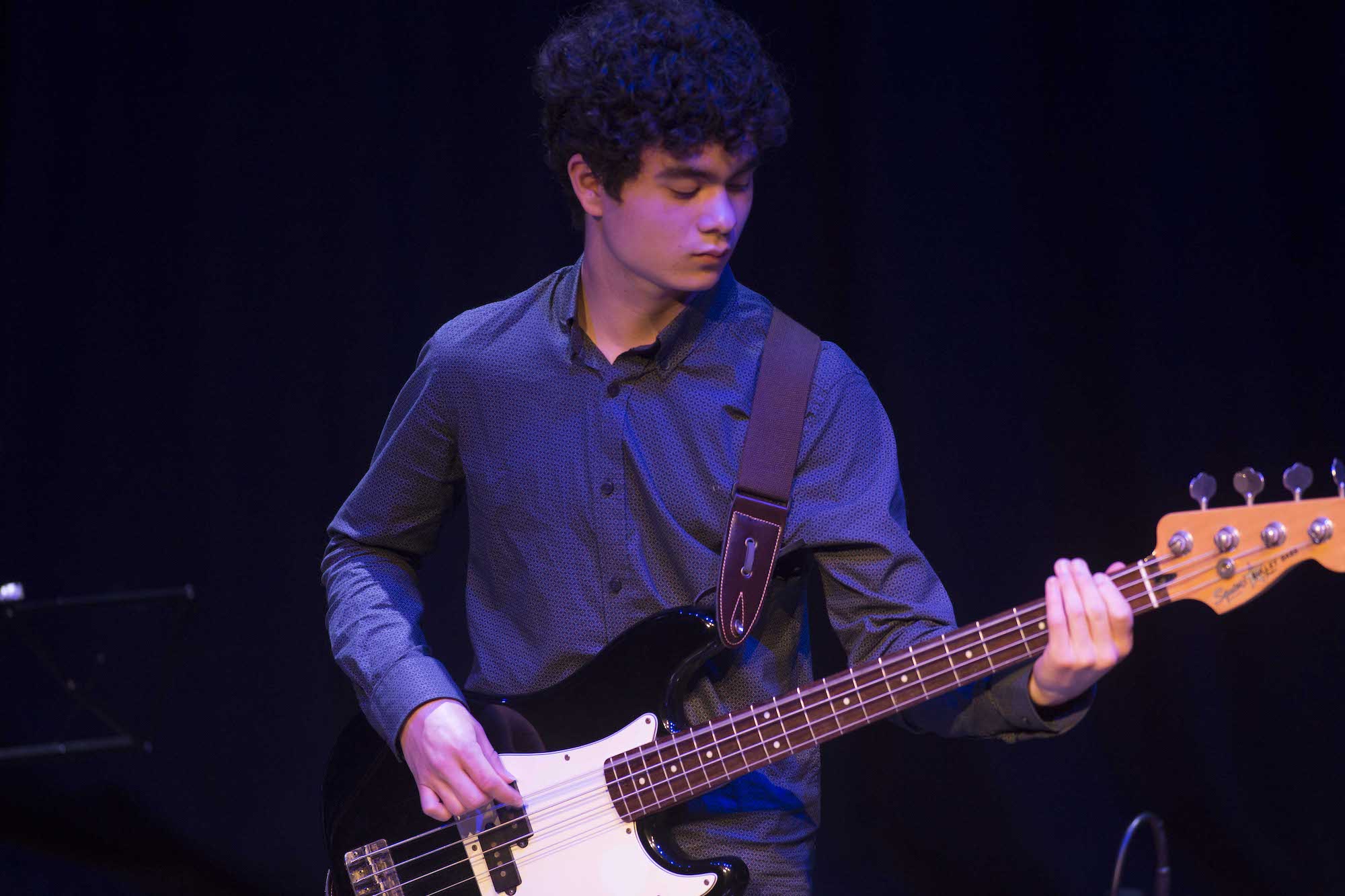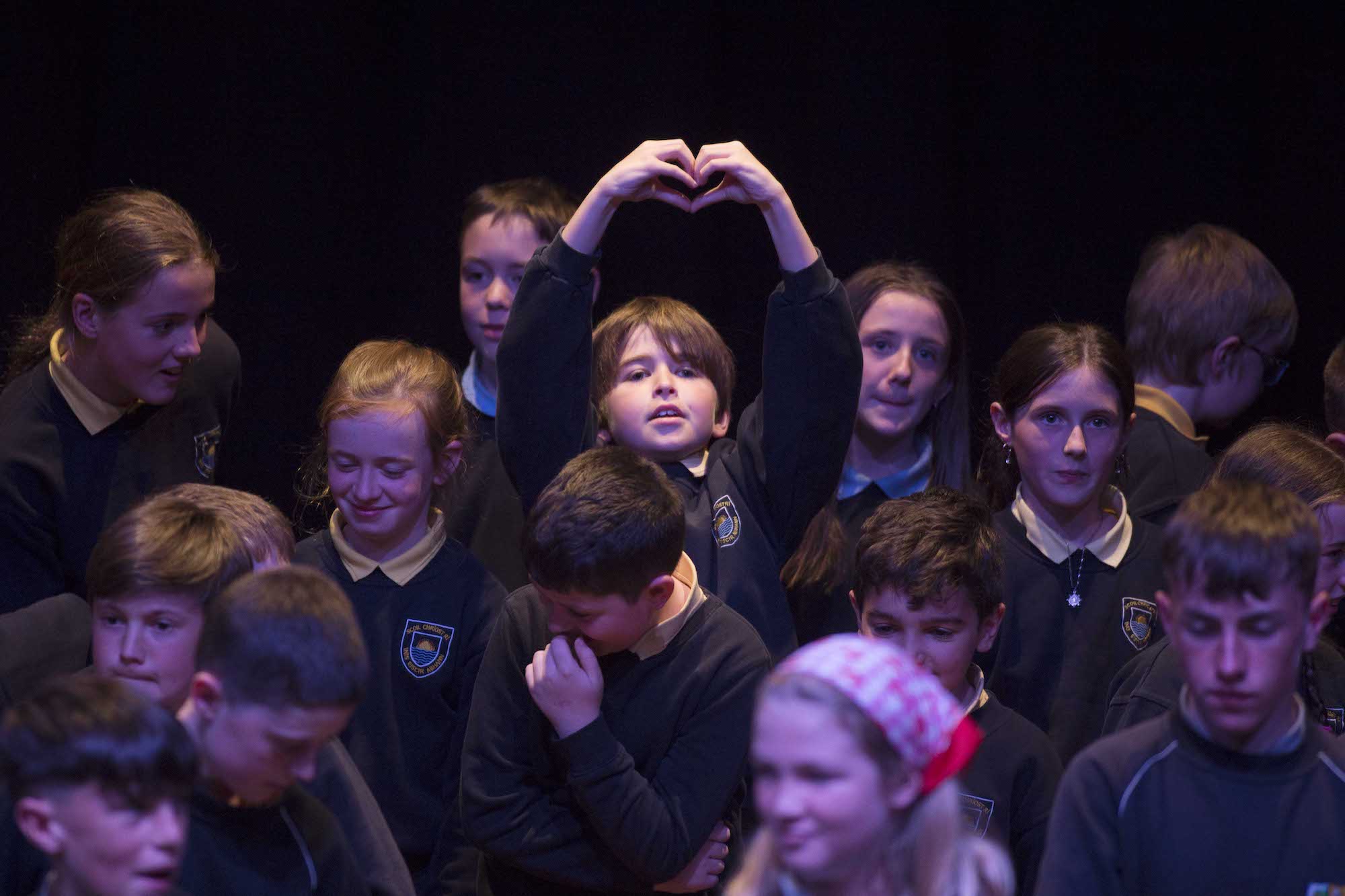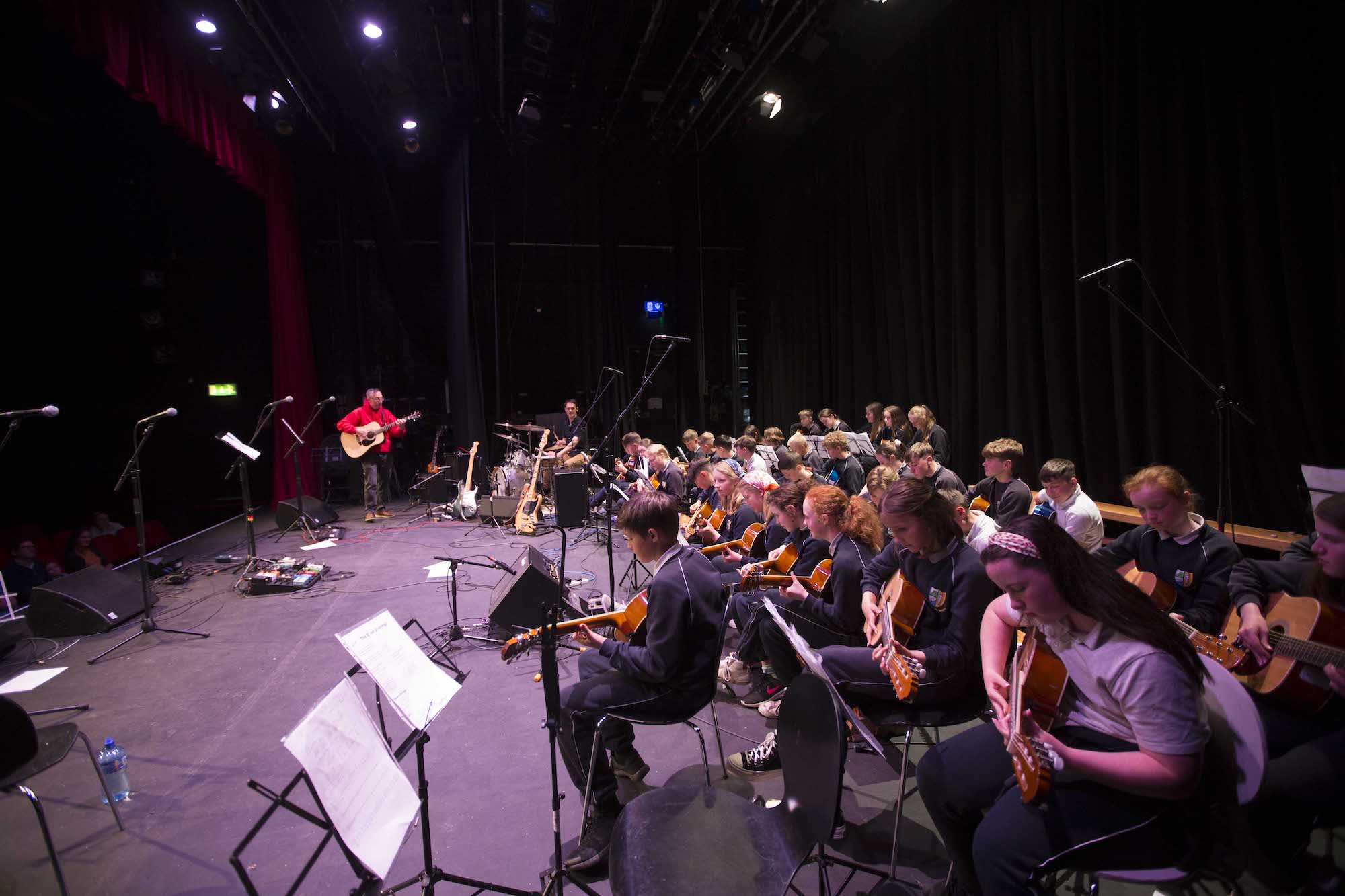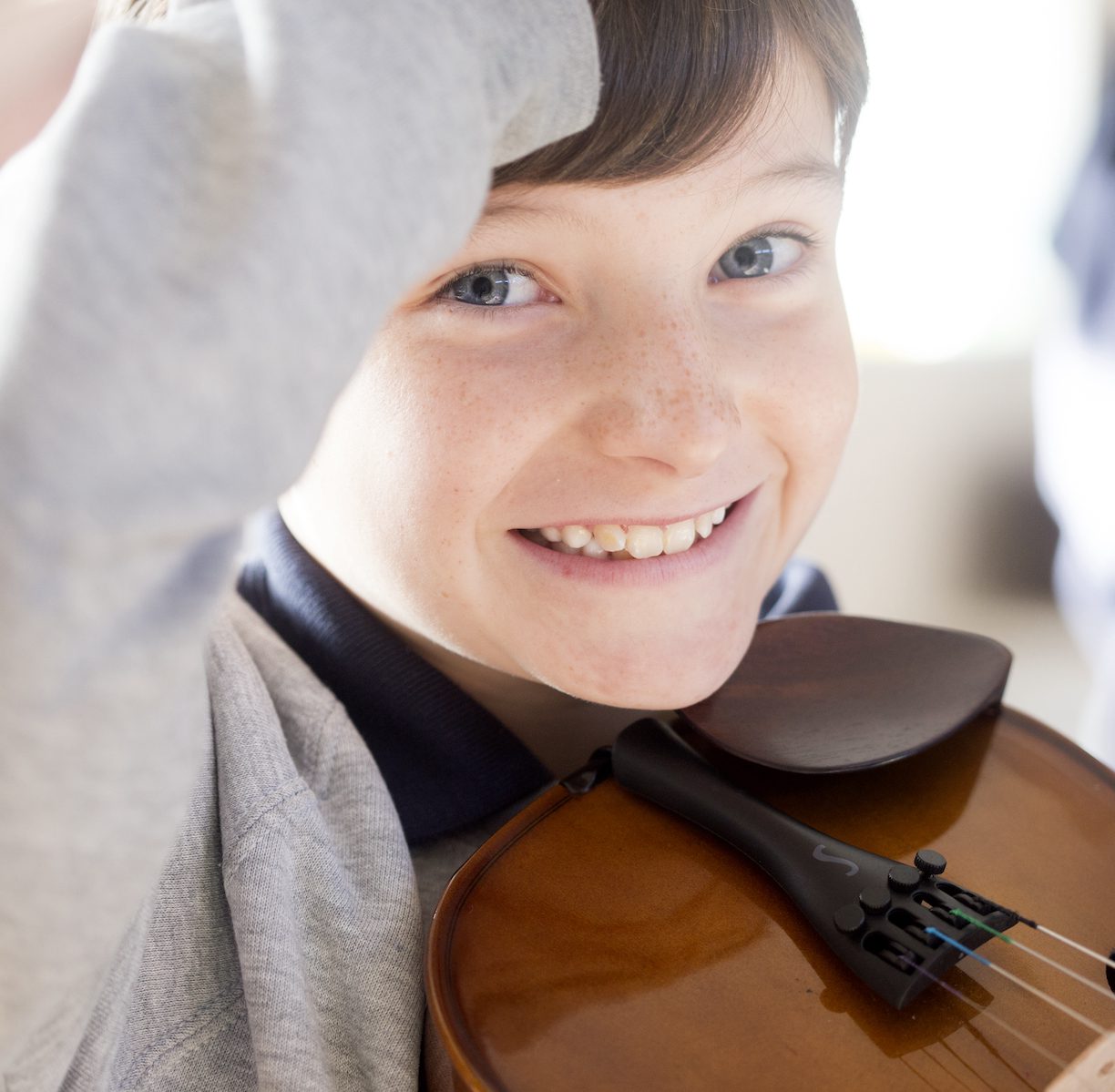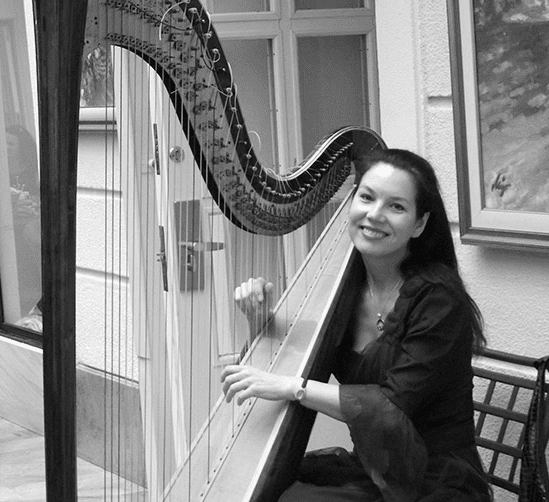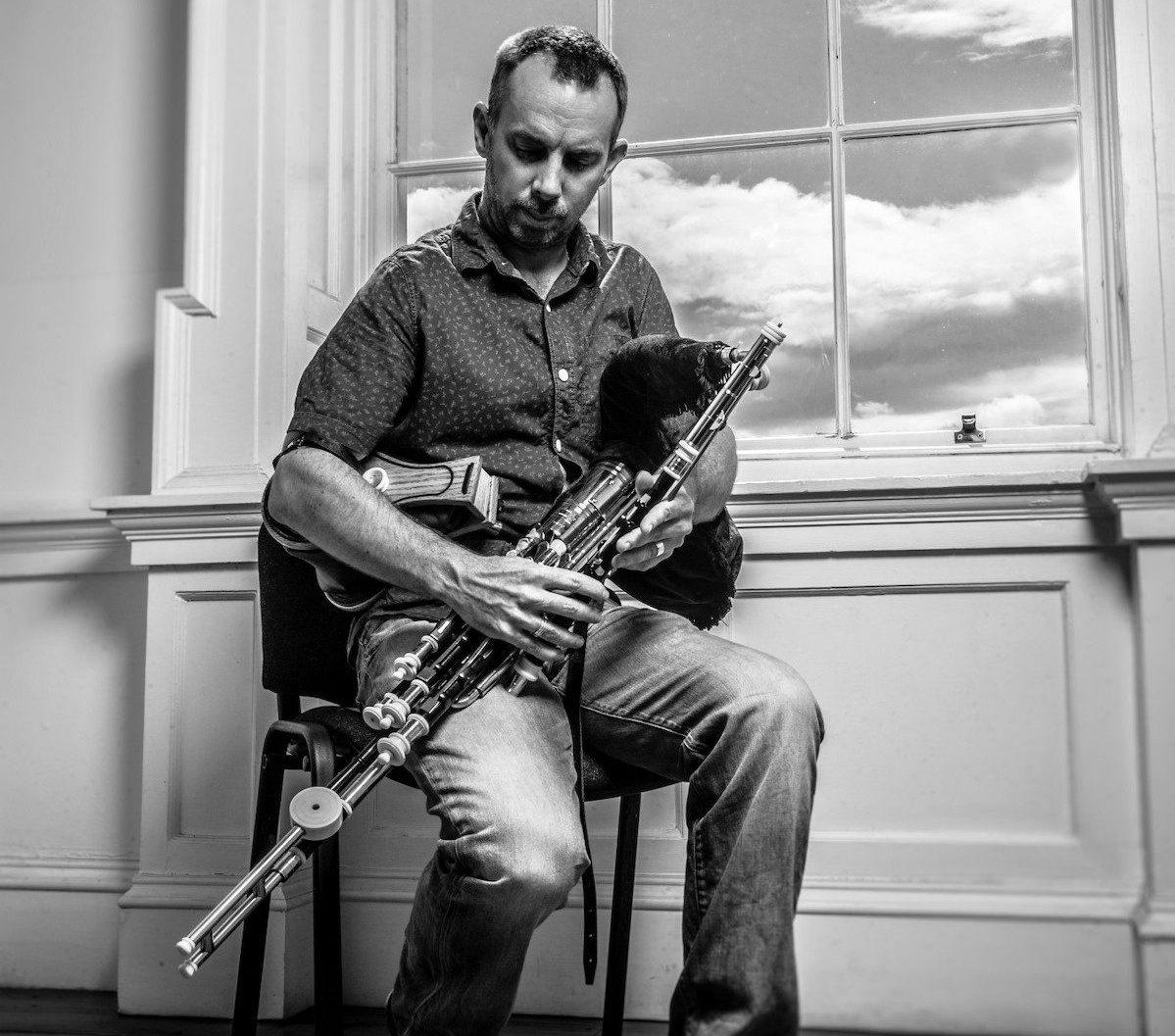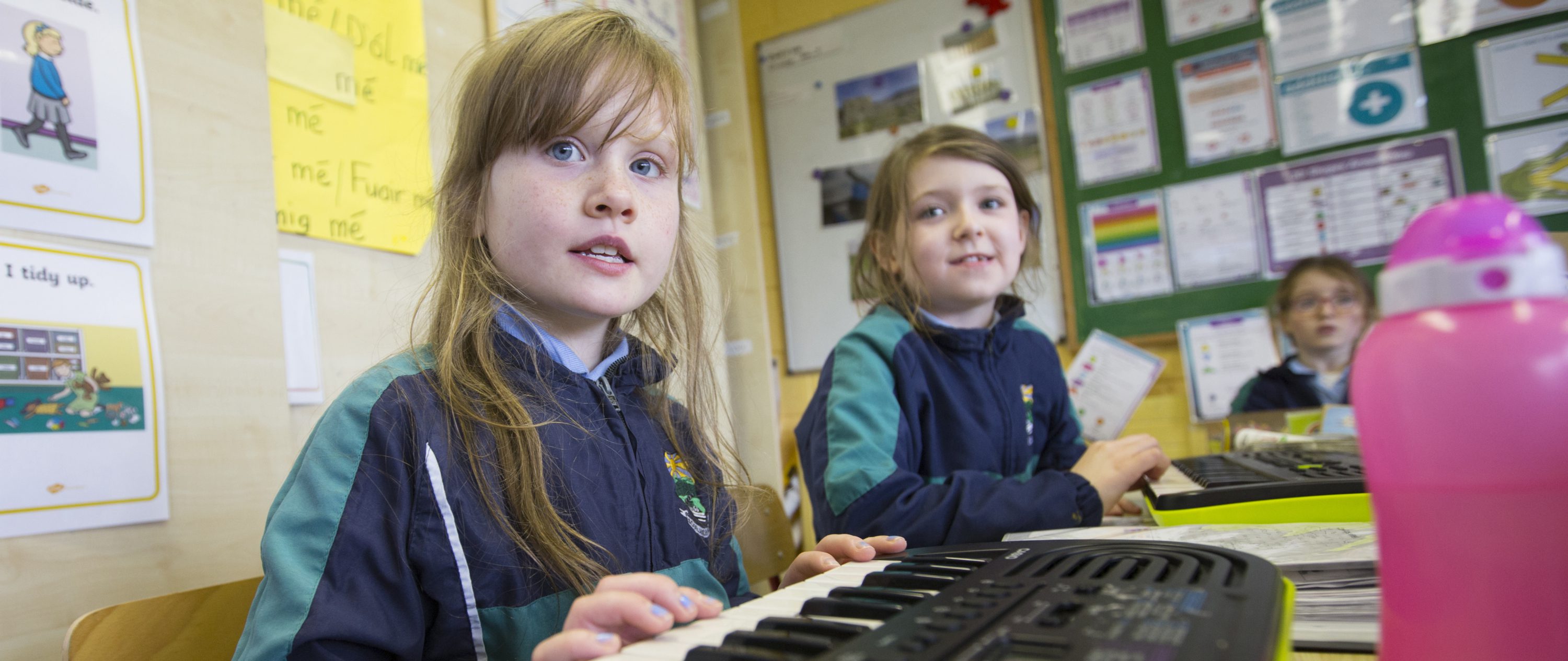Music Generation Sligo deliver an exciting range of long term music performance programmes for children and young people throughout county Sligo. Music Generation Sligo provides opportunities to all children and young people to access and participate in high quality music performance education that will encourage and inspire Sligo’s future young musicians.
About U2 and Music Generation Ireland
We are a part of Music Generation, Ireland’s National Music Education Programme. Initiated by its parent company Music Network, Music Generation is co-funded by U2, The Ireland Funds, the Department of Education and Local Music Education Partnerships (LMEPs).
U2, in partnership with The Ireland Funds, have donated over €13.3 million to Music Generation Ireland since 2009. Music Generation is now in every county in Ireland providing performance music education and opportunities for under-18s. Music Generation believes in every child and young person’s musical potential and their innate artistry; that it is every child and young person’s right to have the choice of access and the chance to participate as a musical citizen and that music doesn’t just change lives, it transforms lives.
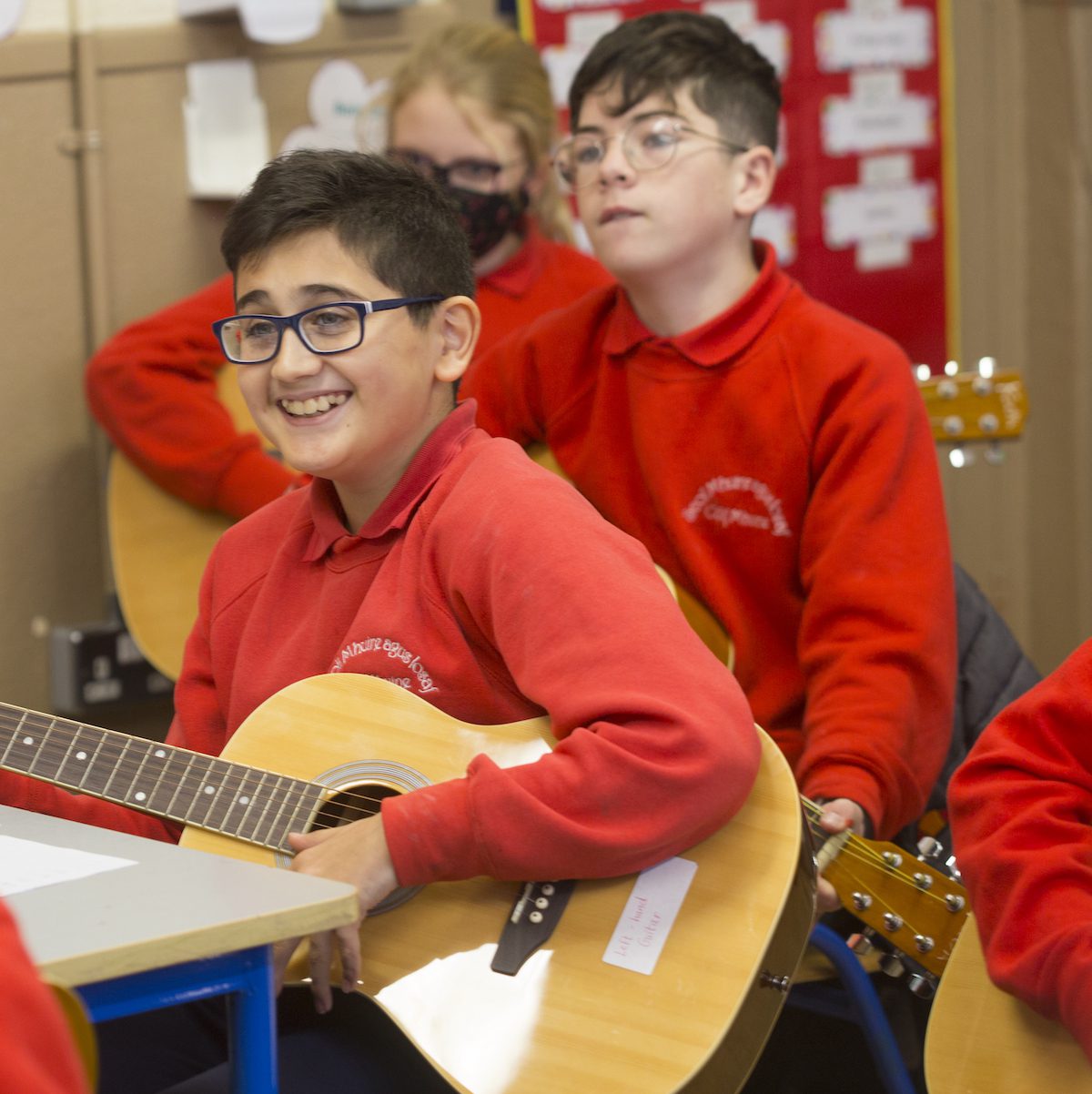

How making music supports intellectual, social and personal development
Considerable evidence has shown that everyday listening skills are stronger in musically-trained children than in those without. Listening skills are closely tied to the ability to perceive speech in a noisy background, discriminate between sounds, pay attention and keep sounds in memory.
The skills used in language processing are similar to the skills needed to perceive rhythm, harmony and melody. Studies have shown that children with musical experience are able to make stronger distinctions between speech syllables than those without.
Research has shown that children with reading difficulties have experienced improvement after engaging with music. A study of 15 children identified as ‘poor readers’ by their school demonstrated significant gains in reading comprehension, accuracy, and rate of reading following a rhythmic music intervention.
Children with musical training have been found to have significantly better verbal learning and retention abilities. In research investigating the influence of group instrumental training on the working memory of children, the music group showed a greater increase on every measure of verbal memory than science and control groups.
There is strong and reliable evidence5 that active engagement with music leads to dramatic improvements in spatial reasoning – the abilities that form the basis for performance in engineering, architecture and design.
Studies have demonstrated that children and young people participating in music instruction showed dramatic enhancements in abstract reasoning skills, with researchers identifying neural firing patterns that suggest music may hold the key to higher brain function.
Executive functions involve the conscious control of action, thoughts, emotions, and general abilities such as planning and problem-solving. Playing a musical instrument, particularly in an ensemble, requires many skills associated with executive functioning, including sustained attention and goal-directed behaviour.
Music enhances self-efficacy, self-esteem, improvements in mood, reduced anger, increased motivation and improved behaviour. For young people not in education, training or employment, active engagement with music-making enhances self- confidence, increases aspirations and supports a more positive attitude towards learning.
Music is increasingly being recognised for its beneficial effects on physical health and wellbeing. Music-making can contribute to improved negotiation skills, co-operative working and learning to trust peers. It provides respite from problems, supports healing, and creates opportunities for having fun.
Making music in a group has been shown to contribute to feelings of social inclusion, as well as to encourage tolerance and the development of social ethics. There is also evidence that collective music-making promotes elements of positive social behaviour including co-operation, belongingness, collaborative learning, group identity, turn-taking and teamwork.
How music and access to music tuition promote positive mental health
Numerous studies have concluded that music and music education have a statistically significant impact on the wellbeing of participants. A year-long study by Noise Solution found that, following music outreach, the percentage of participants experiencing a low level of wellbeing decreased to less than 20%. Another study by Rhythmix concluded that many young people find that music can help them to take steps towards improved mental health and wellbeing.
Singing has been proven to reduce anxiety and depression. A study by the Sidney De Haan Research Centre shows that singing reduced participants’ feelings of mental distress, anxiety and depression, and improved their mental wellbeing more generally. Research has also concluded that there are a range of health and wellbeing benefits associated with participating in a choir, including physical relaxation and release of physical tension, emotional release and reduction of feelings of stress, a sense of happiness, positive mood, joy and elation.
Neuroscientists are demonstrating that there is a causal connection between music study and cognitive growth. A report from The Royal Conservatory found that ‘music education is a powerful tool for attaining children’s full intellectual, social, and creative potential’. It speed ‘the development of speech and reading skills’, training ‘children to focus their attention for sustained periods’, and helping ‘children gain a sense of empathy’, all of which are conducive to positive mental health.
Evidence suggests that participating in music lessons with their child/children allows parents to feel ‘among equals’. Parents feel recognition and connected with a group, reinforcing a sense of competent parenting and parental sensitivity. A safe place is created for both child and parent.
In her report The Power of Music, Susan Hallam describes how playing an instrument provides a means of self-expression and leads to a sense of achievement, increased confidence and self-esteem, self-discipline and persistence in overcoming frustrations when learning is difficult. Moreover, as part of his impact evaluation research into the UK’s Sing Up Programme, Professor Graham Welch cited attitudinal data revealing that children with experience of Sing Up are significantly more positive about themselves, have a stronger sense of belonging to their community and of being socially included.
Music makes a major contribution to the development of self-identity during adolescence. Reports show that participating in musical groups promotes friendships with like-minded people, social and networking skills, a sense of belonging, team work, co- operation, responsibility, commitment and mutual support.
Music has been linked to an increased capacity to recognise and be sensitive to emotions, traits which are both related to the development of emotional intelligence.
The concept of possible selves in music is a powerful one that conveys the transformational potential for children and young people’s meaning-making experiences in music. Because of the experiences children and young people have, it is possible for them to imagine a role for music in their lives and to strive on their own and with others to achieve this. A research partnership commissioned by Music Generation with DCU found that there is a range of possible selves, which might include being connected to others through music, to being musically creative, innovative and inventive with music, taking a leadership role in music, or simply having music as a significant, personally expressive part of one’s life.
How music benefits social and economic development
Beyond its important social and reputational contribution, music is a vital economic driver – both directly and indirectly. In a 2017 report commissioned by IMRO and carried out by Deloitte it was found that music contributes more than €700m to the Irish economy, and supports more than 13,100 jobs.
There is considerable evidence of the benefits of music on economic development. A 2015 report published by IFPI and Music Canada found that a thriving music scene generates a broad range of benefits including economic development, music tourism, city brand-building, cultural development, artistic growth, attracting and retaining talent and investment outside of the music industry, strengthening social fabric, and validating music as a respected and legitimate industry.
Research by Music Australia has shown how music can establish a culture of tolerance and acceptance. Creating and experiencing music as a group leads young people to understand and value diversity, while also promoting sharing and listening. In this way, music is hugely beneficial to the individual and as well as the community.
A 2018 report from the World Tourism Organisation states that ‘Culture is a fundamental part of the tourism experience in Europe, and its importance is growing. Today, cultural tourism is one of the largest and fastest- developing global tourism markets’. Moreover ‘The combination of culture and tourism can be a powerful driver of economic activity.’ The Arts Council reports that in Ireland, cultural tourism is a thriving sector worth more than €2 billion to the Irish economy. In the UK, research focusing specifically on the value of music tourism to the economy found that almost 6.5 million domestic and overseas tourists contribute £2.2 billion through attendance at concerts and festivals each year, while also supporting 24,000 employment opportunities.
A study from the University of Southern California highlights how music promotes mutual tolerance and intercultural understanding and can allow two individuals, who may hold contrasting world views, to coexist and bond even in situations of conflict.
A research partnership initiative carried out across Local Authorities in Ireland revealed the influential role that Arts Offices can play in local communities, through the setting up and support of festivals, music schools, orchestras, music groups and developmental music programmes. There were seen to be significant knock-on effect of such structures on a community in attracting musicians, artists, businesses, tourists and entrepreneurs, thus benefiting the social capital, local economy and cultural identity of an area.

